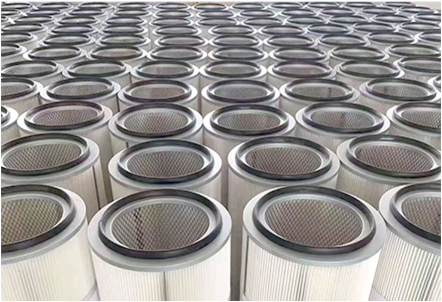 Tel:
+8615930870079
Tel:
+8615930870079
Dec . 11, 2024 10:42 Back to list
Understanding the Function and Importance of Cartridge Oil Filters in Vehicles
Understanding Cartridge Oil Filters Importance, Functionality, and Maintenance
Cartridge oil filters are an essential component in the intricate machinery of modern vehicles. They play a vital role in ensuring the efficient operation of the engine by filtering impurities from the oil that circulates through it. Understanding how cartridge oil filters work, their significance, and the best maintenance practices can greatly extend the life of your vehicle and enhance engine performance.
What is a Cartridge Oil Filter?
A cartridge oil filter is a type of oil filter that comes in a cylindrical cartridge. It typically consists of a filter element housed within a metal or plastic casing. Unlike traditional spin-on filters, cartridge filters require a separate mounting base, which allows for easier replacement of the filter element while keeping the base intact. This design often leads to less waste, making it a more environmentally friendly option.
Importance of Cartridge Oil Filters
Oil filters, including cartridge types, serve a crucial purpose in vehicles. They are designed to remove contaminants such as dirt, metal particles, and sludge from the engine oil. Clean oil is essential for the proper lubrication of engine parts, preventing wear and tear. When impurities build up in the oil, they can cause significant damage to the engine by obstructing oil flow and leading to inadequate lubrication.
An efficient cartridge oil filter ensures that the oil remains clean, allowing the engine to operate smoothly and efficiently. This not only enhances performance but also improves fuel economy. Furthermore, clean oil plays a pivotal role in maintaining lower emissions, as it allows the engine to function optimally.
How Do Cartridge Oil Filters Work?
The function of a cartridge oil filter is relatively simple yet effective. As the engine operates, oil is pumped from the oil pan through a filter. The oil enters the cartridge, where it passes through the filter media designed to capture contaminants. The filtered oil then returns to the engine to lubricate components, while the contaminants are trapped within the filter.
The filter media is typically made from various materials, including paper, synthetic fibers, or a combination of both, designed to maximize filtration efficiency. Some cartridge filters also feature a bypass valve that allows oil to bypass the filter in case of severe clogging, ensuring that the engine continues to receive lubrication even in less-than-ideal circumstances.
Choosing the Right Cartridge Oil Filter
cartridge oil filter

Selecting the appropriate cartridge oil filter is crucial for maintaining engine health. When choosing a filter, consider factors such as vehicle make and model, filter specifications, and oil type. It is advisable to consult the owner's manual or seek expert advice to ensure compatibility.
Additionally, not all cartridge filters are created equal. Some filters come equipped with advanced features, such as additional filtration layers or improved media materials, which can enhance their effectiveness. Investing in a high-quality filter can lead to longer intervals between oil changes and better overall engine performance.
Maintenance Tips for Cartridge Oil Filters
Proper maintenance of cartridge oil filters is vital to ensure their efficiency. Here are some tips to keep them in good shape
1. Regular Changes Follow the manufacturer’s recommendations for oil change intervals, which often includes changing the oil filter. This proactive approach prevents buildup of contaminants.
2. Quality Oil Use high-quality engine oil that meets the specifications of your vehicle. Higher-grade oils often offer better performance and filtration properties.
3. Check for Leaks Regularly inspect the filter and surrounding areas for any signs of oil leaks, which can indicate a failure of the filter or seals.
4. Dispose Properly When changing your filter, ensure proper disposal of the old filter. Many auto shops and recycling centers offer disposal services.
Conclusion
In conclusion, cartridge oil filters play an indispensable role in the longevity and performance of vehicle engines. By understanding their function, choosing the right type, and adhering to regular maintenance practices, you can help ensure that your engine runs smoothly for years to come. By investing time and effort into caring for your vehicle’s oil filter, you not only protect your engine but also contribute to a more sustainable future. Proper filtration can lead to better performance, reduced emissions, and ultimately, a more efficient vehicle.
-
Types and Applications of Air Filtration CartridgesNewsJul.28,2025
-
The Role of Gas Turbine FiltersNewsJul.28,2025
-
Mastering Air Filter Cartridge UseNewsJul.28,2025
-
Advanced Turbine Filters for Modern Gas TurbinesNewsJul.28,2025
-
Cellulose Air Filter Cartridge Advantages in Dust FiltrationNewsJul.28,2025
-
Cellulose Filters for Air Particle ReductionNewsJul.28,2025

 Email:
Email:





